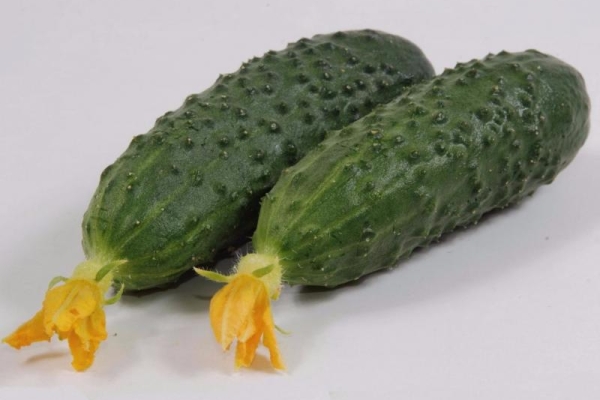Cucumbers taken to use unripe. This is precisely their peculiarity compared to other vegetables. Early maturing varieties with a high degree of yield have gained immense popularity. These varieties include Marinda - this cucumber has already gained immense popularity among gardeners and has tremendous advantages over competitors.
Table of contents
Description and characteristics of the variety Marinda f1
Variety of cucumbers Marinda is a hybrid with early ripening. He was withdrawn in Holland.
Marinda's bush is characterized by the presence of many lashes, but it is not thickened. Very unpretentious.
According to the description, about 7 even dark green fruits can be formed on each node. Their length reaches 10 cm, and the weight is about 70 grams. The flesh is dense, crunchy, without bitterness.
From 1 square you can collect approximately 30 kg of crop. Variety zoned for all climatic zones of our country.
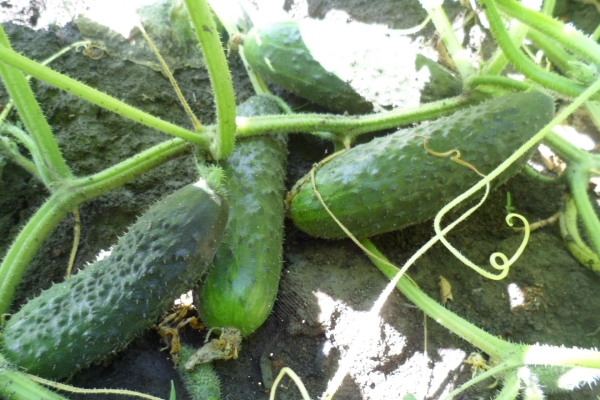
The advantages and disadvantages of cucumbers
Marinda has many more advantages than disadvantages. That is why cucumbers and fell in love with our summer residents.
The plant has such positive qualities., as:
- excellent taste;
- a large percentage of seed germination;
- high yields;
- lack of care;
- high resistance to major diseases;
- universality of use;
- self-pollination;
- can be grown both in the greenhouse and in the open field.
Also the plant may be affected by angular spotting, peronosporosis. Such cases were noted not often, but gardeners managed to draw attention to this fact.
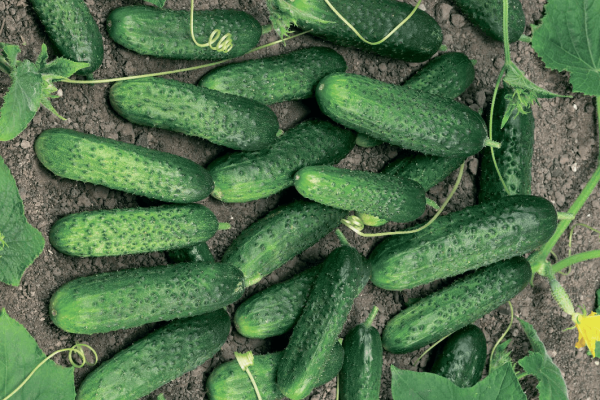
Requirements for soil for planting
Cucumbers - a plant though unpretentious, but to get a good harvest, you need to choose the right soil for growing.
The bed should be located in a well-lit place.. Winds and drafts should not be. In case of insufficient lighting, the tops will grow weak and thin, the harvest will be scarce, the commercial quality will also suffer.
Rules of sowing seeds cucumber Mirinda
Cucumbers Mirinda planted on a plot with seeds or already ready seedlings. The second method is more laborious, but it allows you to get an early harvest.
For this seeds are pre-placed in wet gauze and incubated for three days. After this time, the shoots should appear.
Sprouted seeds are planted in pre-prepared containers with a soil mixture to a depth of 1.5 centimeters and cover with a film.
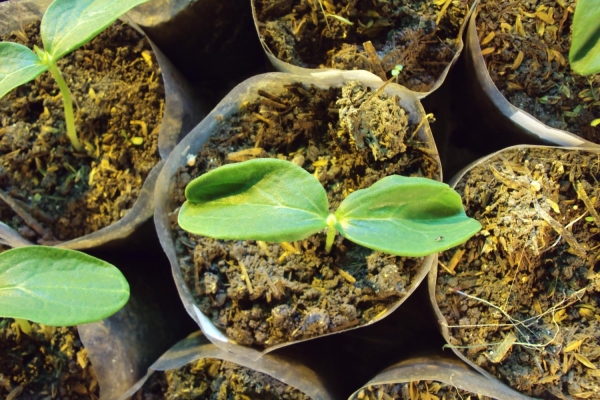
Shoots should appear on the fifth day., after which begin a moderate watering. A month later, you can plant the resulting seedlings in open ground.
However before that hardening recommended during the week (take young plants outside for a few hours a day).
Preparation includes the addition of compost or manure in the ratio of 1 bucket per 1 square. meter. Also, the wells before planting should be poured abundantly with water.
With a late planting or planting in a heated greenhouse Marinda cucumbers can be sown in seeds. The soil should be heated to 15 ° C.The planting scheme is the same as when planting finished seedlings.
To protect the plants from the night cold, it is recommended to build a cover from the film.
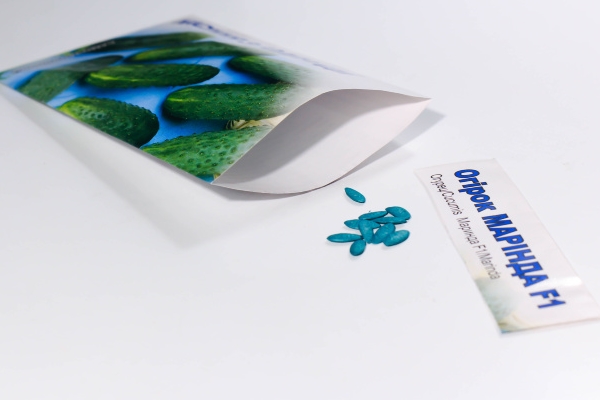
Grade care after planting
After planting cucumbers varieties Marinda require some care. In particular, once a week the beds are recommended to weed.
Also need to constantly remove weeds. But this should be done carefully. It is better if the soil is wet. After all, the root system of cucumber is not too deep into the soil and the plant itself can break out together with the weed.
For full development and the formation of fruits cucumbers need a lot of water. Before flowering, watering is carried out once a week, and with the beginning of the appearance of the ovary - once every four days.
In conditions of strong heat, irrigate the beds can be more often. Water should be used warm..
During the season, spend about 4 feeding cucumbers. The first should be at the very beginning of flowering, and the next with an interval of a couple of weeks.
Urea, superphosphate, potassium sulfate, and mullein are used for this.
These drugs will help compensate for the lack of certain trace elements in the soil.
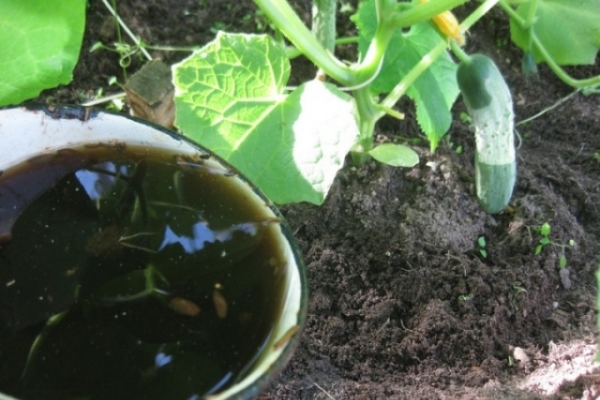
Diseases and their prevention
Despite the fact that Marinda is a disease resistant variety, it requires some protection measures. In addition, there are a number of pests wishing to eat cucumbers.
To keep the plants healthy, should not prevent the lack of phosphorus and potassium.
Permanent crop rotation at the site also helps to fight not only diseases but also pests. Excess moisture should be avoided., for planting take only healthy material.
In order to prevent the soil at the site dig, plant residues are destroyed. Garden beds can be treated with Bordeaux mixture.
Harvesting and storage rules
To increase yields fruits are collected every couple of days. It is best to perform the procedure in the morning or evening. To remove the harvest from the bush use scissors or a sharp knife.
Harvested fruit stored in a cool place.. However, the process of storing fresh vegetables should not be long.
Marinda can last up to three weeks, but for this you need to create certain conditions. The collected cucumbers are folded in a plastic bag, not closing it, and damp gauze is placed on top.

Marinda perfectly suited both for fresh consumption and for all types of conservation. It is well transported, does not lose its presentation.
Cucumbers varieties Marinda allow gardeners and gardeners without much effort to get excellent yields.
Even in unsuitable weather conditions, no one was left without a crop. Thanks to this variety every year gaining increasing popularity.
